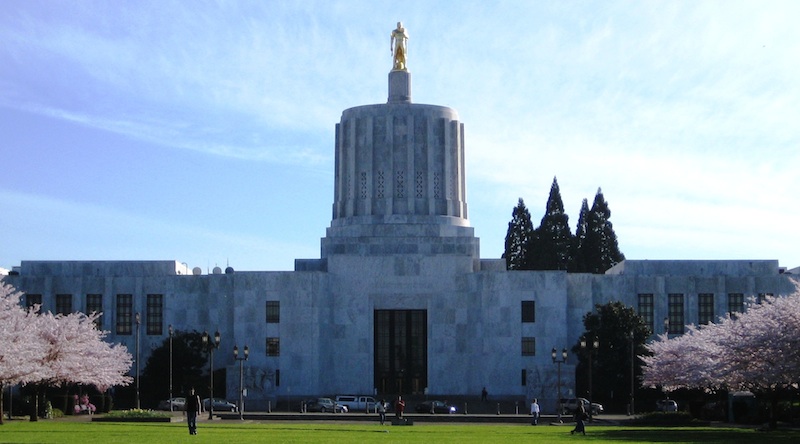
Your Food, Your Legislature: Take Action on Mega-Dairies, Climate Change
It's the midpoint of the interim session of the Oregon legislature, and it's time to let your legislator know what you think. Outlined below are several issues and suggested ways to let your legislators know your opinions.
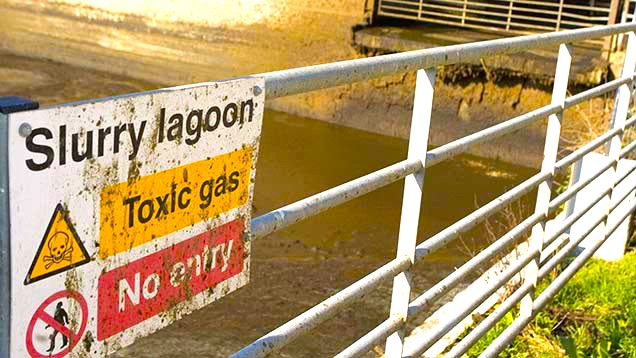 Require large confined animal feeding operations (CAFOs) to apply for approval from Oregon Dept. of Agriculture (ODA) and Dept. of Environmental Quality (SB 1513): On the heels of the catastrophic failure of the 30,000-cow Lost Valley Farm and the ongoing issues with the groundwater in the Boardman area, it was hoped that this bill would establish new regulations protecting Oregon's air, water and rural communities from these huge factory farms.
Require large confined animal feeding operations (CAFOs) to apply for approval from Oregon Dept. of Agriculture (ODA) and Dept. of Environmental Quality (SB 1513): On the heels of the catastrophic failure of the 30,000-cow Lost Valley Farm and the ongoing issues with the groundwater in the Boardman area, it was hoped that this bill would establish new regulations protecting Oregon's air, water and rural communities from these huge factory farms.
Unfortunately, according to Amy van Saun, a senior attorney for the Center for Food Safety (CFS), this bill is not adequate to address the problems raised by these extractive facilities. "The work group bill (similar to the bill proposed last session) does not go nearly far enough, and chipping away at the edges will not protect our community health and welfare from mega-dairies, including the new mega-dairy proposed at the infamous Lost Valley site," she said. "Further, we are concerned that the climate legislation again both exempts mega-dairies from controlling their methane emissions and creates a perverse incentive for people (especially from states with stronger controls) to set up or expand mega-dairies here, and to then sell dirty manure gas as 'renewable biogas' into the market."
Please consider contacting your Senator about this issue (suggested text below).
Dear Sen. [name]:
I oppose SB 1513 and ask that you vote no on passing this bill out of committee. This weak proposal simply doesn’t go far enough in addressing the significant negative impacts that mega-dairies have on our state. Passing it would simply sweep under the rug the state's systemic failures to protect our environment and communities from this industry.
Mega-dairies harm our air and water, small family farmers, animal welfare, and Oregon's special places. Nowhere has that been clearer than at Lost Valley Farm, but it isn't just Lost Valley. Mega-dairies, including the proposed Easterday Farms that regulators are currently considering, have no place in Oregon.
SB 1513 is a weak half-measure that won't adequately address the mega-dairy crisis. We are past the point of minor regulatory tweaks. We need a moratorium on new and expanding mega-dairies.
Thank you,
[your name]
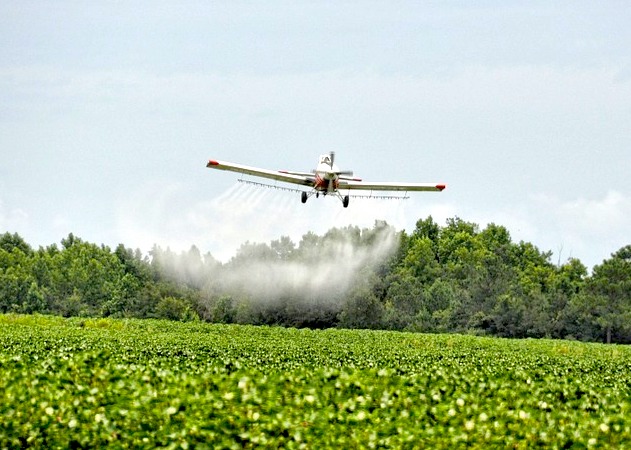 Ban use of the pesticide chlorpyrifos (HB 4109): In a vote of 32-24, a bill to totally phase out the insecticide chlorpyrifos in Oregon by 2022 passed the House today over the objections of farm groups that argued the chemical is still necessary, according an article in the Capital Press. It now goes to the state Senate for approval, so it's time to contact your Senator and voice your opinion (suggested text below).
Ban use of the pesticide chlorpyrifos (HB 4109): In a vote of 32-24, a bill to totally phase out the insecticide chlorpyrifos in Oregon by 2022 passed the House today over the objections of farm groups that argued the chemical is still necessary, according an article in the Capital Press. It now goes to the state Senate for approval, so it's time to contact your Senator and voice your opinion (suggested text below).
Dear Sen. [name],
I am writing to urge you to support HB 4109 to ban the toxic pesticide chlorpyrifos in Oregon. In some agricultural communities current exposure levels to this developmental neurotoxin by children ages one to two exceed the U.S. Environmental Protection Agency’s (EPA) own allowable threshold by a staggering 140 times.
Even at low levels of exposure, chlorpyrifos has been shown to alter brain functions and impair the learning ability of children into adulthood and is correlated with a decrease in psychomotor and mental development in three-year-olds. At high levels of childhood exposure, chlorpyrifos has been found to cause attention deficit, hyperactivity, slow cognitive development, a significant reduction in IQ scores and a host of other neurodevelopment problems. Children who live near farm fields experience the highest risks and impacts. In addition to its danger to people, chlorpyrifos has also been shown to harm beneficial insects, fish and birds.
Oregon should not allow industrial interests to endanger the health and well-being of its children or our environment. Please vote for HB 4109 to ban this dangerous chemical.
Sincerely,
[your name]
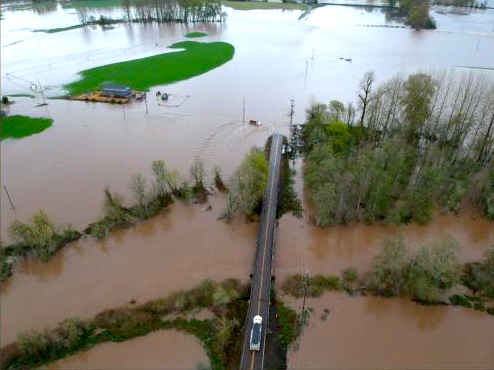 Climate cap and trade (SB 1530): Also known as Legislative Concept 19, according to an article from Oregon Public Broadcasting, "the bill would force big greenhouse gas emitters to obtain credits for each ton of gas they emit, and create an overall cap for emissions allowed in the state. That cap would lower over time, in theory ensuring Oregon meets stringent conservation targets in 2035 and 2050. Entities required to obtain permits could trade them with one another."
Climate cap and trade (SB 1530): Also known as Legislative Concept 19, according to an article from Oregon Public Broadcasting, "the bill would force big greenhouse gas emitters to obtain credits for each ton of gas they emit, and create an overall cap for emissions allowed in the state. That cap would lower over time, in theory ensuring Oregon meets stringent conservation targets in 2035 and 2050. Entities required to obtain permits could trade them with one another."
Unfortunately, this bill does not put any controls on emissions from mega-dairies, but would allow them to profit from selling methane capture credits, could perversely incentivize more of these polluting operations to flock to Oregon or expand here. SB 1530’s failure to address these significant emissions thereby threatens to lead to an increase in methane emissions, in direct conflict with the attempts by Oregon legislators to curb climate change.
Add your voice to the 7 out of 10 Oregonians who support climate action in Oregon, and insist that emissions from factory farms are included in the caps (suggested text below).
Dear Sen. [name],
I believe that climate change is the greatest environmental challenge of our time, created and exacerbated by our ongoing actions and inactions. In the face of unforgivable federal inaction, I thank you for your attempts to take action here in Oregon to address our own contributions to climate change and to prepare Oregonians for the future.
However, I am concerned that SB 1530 does not put any controls on emissions from mega-dairies, but would allow them to profit from selling methane capture credits and could perversely incentivize more of these polluting operations to flock to Oregon or expand here. SB 1530’s failure to address these significant emissions threatens to lead to an increase in methane emissions, in direct conflict with the attempts by Oregon legislators to curb climate change.
Oregonians deserve better than dirty mega-dairies. Again, while we applaud your efforts to address climate change, we urge you not to make the problem worse by ignoring the biggest source of methane in our state. Any effective climate legislation simply must address this significant and expanding source of greenhouse gas emissions in Oregon.
Thank you,
[your name]

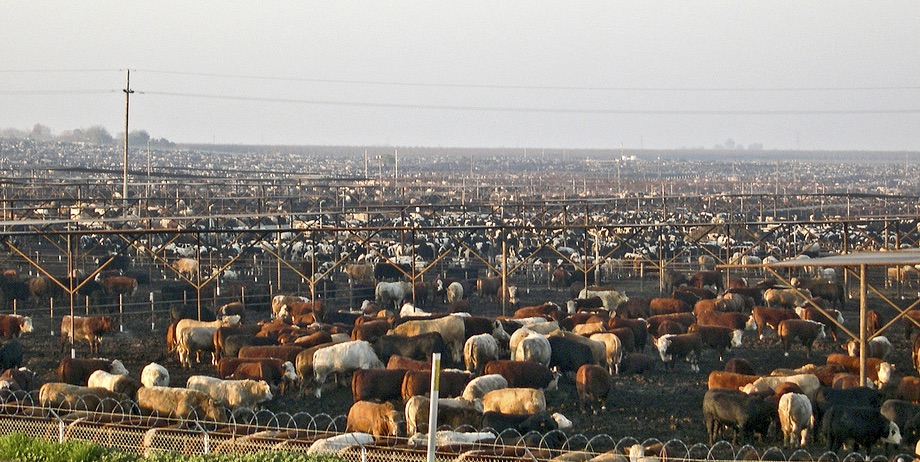 New regulations on confined feeding operations (CAFOs) with more than 2,500 animals (
New regulations on confined feeding operations (CAFOs) with more than 2,500 animals (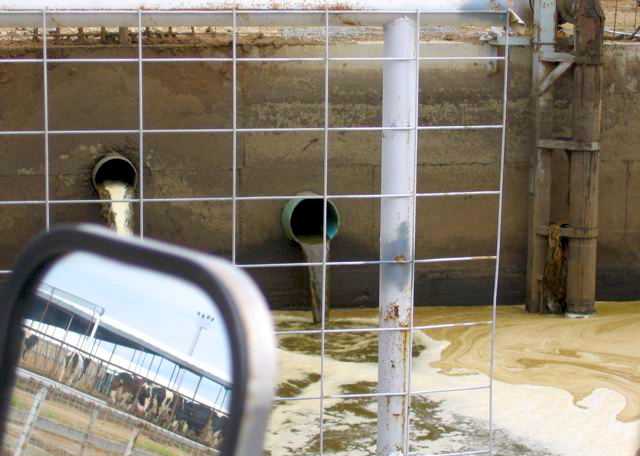 Study groundwater contamination and implement improvement plan for Lower Umatilla Basin Groundwater Management Area (
Study groundwater contamination and implement improvement plan for Lower Umatilla Basin Groundwater Management Area ( Establishment of an Oregon Hemp Commission (
Establishment of an Oregon Hemp Commission (